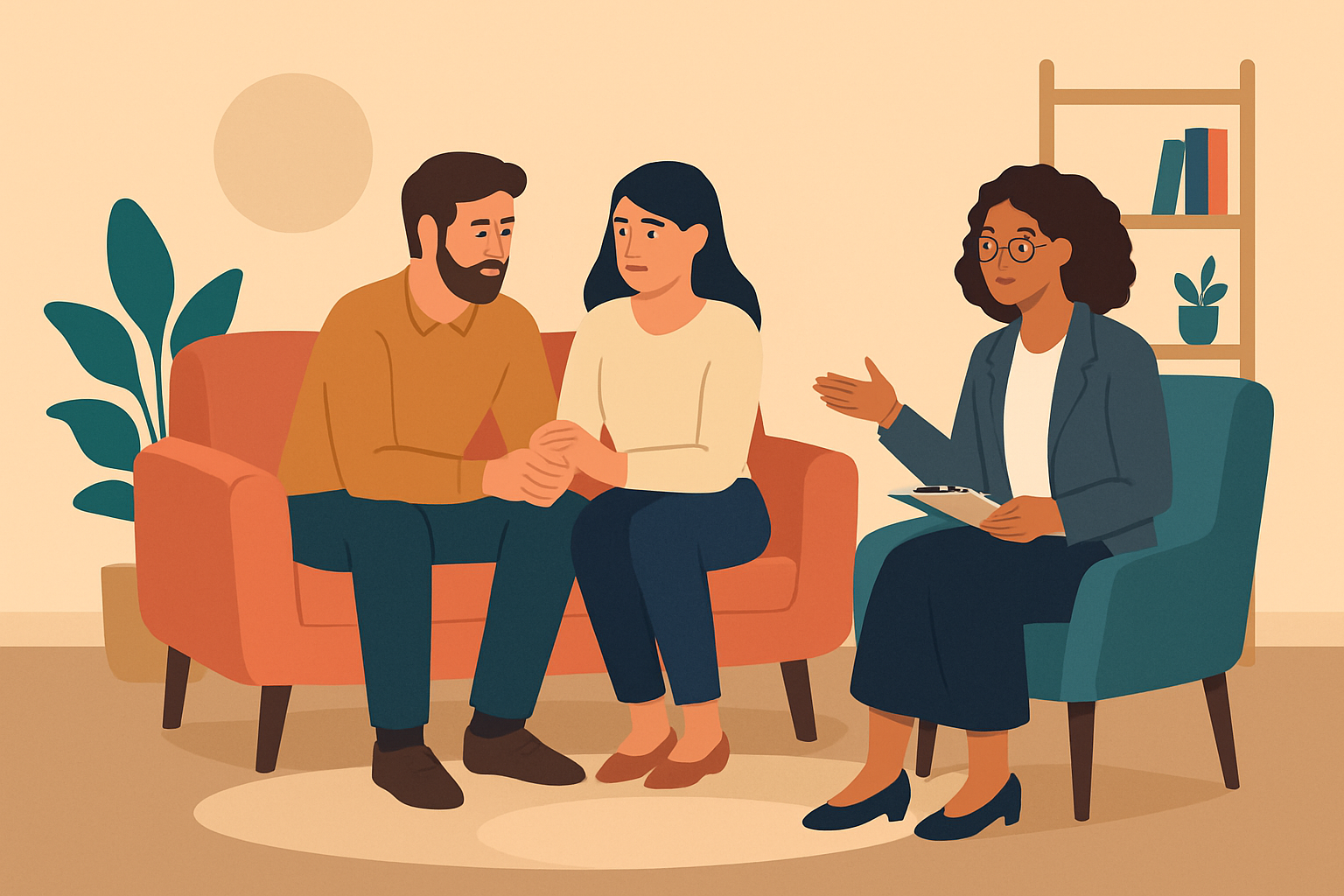How Long Does It Take to Heal from Infidelity in Couples?

Infidelity between partners is a painful breach of trust that often leaves emotional wounds running deeper than one might expect.
What It Really Means to Heal from Infidelity
Healing from infidelity is about more than just forgiveness or trying to shove the past into a dusty corner of your mind. It’s about slowly rebuilding trust and navigating through emotional pain that doesn’t vanish overnight. It also means rekindling closeness you thought was lost and often discovering fresh ways to truly talk and listen to each other. This journey is anything but simple or quick—it is a tangled ongoing process.
- Acknowledge and really sit with the emotions that betrayal brings such as pain and anger and all those messy feelings that aren’t easy to swallow.
- Make a genuine effort to reopen honest and open lines of communication between partners even when it feels awkward or tough.
- Take your time rebuilding trust. Consistency and transparency are your best friends here so there’s no rush.
- Find healthy outlets to work through feelings of resentment and jealousy because bottling them up never helps anyone.
- Set new boundaries that reflect where the relationship stands now rather than where it used to be.
- Nurture empathy for each other’s perspectives and experiences even when it’s hard to see eye to eye.
The Emotional Rollercoaster Couples Typically Ride After Infidelity
Couples often find themselves navigating a rollercoaster of emotions: shock, denial, anger, bargaining, depression, acceptance and eventually growth.
The initial shock and disbelief hit hard, catching both partners off guard and leaving them stunned.
Deep pain and anger tend to zero in on the unfaithful partner and the whole situation.
People usually scramble to find explanations and try to make sense of the infidelity.
Emotional withdrawal and putting distance between each other often become survival tactics.
Over time, there is a slow, sometimes painful acceptance of what happened and the start of imagining a way forward.
Rebuilding the connection generally calls for open, honest dialogue, trust renewal, and vulnerability.
This journey leads to either a fresh commitment or the tough choice to part ways and move on.
Key Factors That Play a Role in How Fast Healing Happens
The time it takes to heal from infidelity can vary quite a bit and often depends on many factors. These include how deep the betrayal cut and the circumstances surrounding it. It also depends on how openly the couple talks things through, the state of their relationship before this happened, and their willingness to forgive. Support networks like counseling and personal or cultural attitudes toward fidelity and forgiveness also play a role.
| Factor | Description | Impact on Healing Time | Example Scenarios |
|---|---|---|---|
| Severity of Infidelity | The nature of the betrayal, whether emotional or physical, one-time or ongoing | Typically, the deeper the wound, the longer the healing journey tends to be | A fleeting emotional slip-up versus a drawn-out affair that drags on |
| Communication Styles | How openly and genuinely partners share their feelings | When couples lay it all out honestly, it often speeds up the healing process | Partners having heartfelt, empathetic talks versus those who dodge tough conversations |
| Previous Relationship Health | The level of trust and satisfaction before the betrayal occurred | Relationships that were strong beforehand usually bounce back quicker | Happy, long-standing couples compared to those already navigating rough waters before the betrayal |
| Willingness to Forgive | Whether one or both partners are ready to move beyond the pain | Holding onto grudges tends to slow or even stall healing | Couples actively working through pain versus those clinging stubbornly to resentment |
| Counseling and Support | Availability of professional guidance and social encouragement | Having solid support—like therapy or friends—often gives healing a good boost | Couples who seek out therapy compared to those flying solo without guidance |
| Cultural/Personal Values | Personal or societal beliefs about betrayal and the healing process | Beliefs shape what partners expect and how ready they are to heal | Communities with a strong loyalty focus contrasted with those more open and forgiving |
Typical Healing Times According to Research and Experts What You Can Usually Expect
Research suggests that healing from infidelity can take anywhere from a few months to several years. How long it takes really depends on factors like the emotional fallout and the nature of the relationship and how much support someone can lean on.
Healing from infidelity is a deeply personal journey that rarely sticks to a neat timetable. It often calls for a good dose of patience, plenty of understanding, and a steady commitment to piecing together a relationship that truly works for both people involved. — Dr. Susan Anderson, Clinical Psychologist specializing in relationship recovery
Practical Steps Couples Can Take to Support Healing (That Actually Work)
Couples often find their healing really takes off when they lean into honest communication and do not hesitate to seek professional counseling. They show genuine empathy and create new routines that quietly rebuild trust.
Honestly acknowledge the betrayal and the deep hurt it brought—don’t try to brush those feelings under the rug. They’re very real after all.
It might be worth considering professional support like couples therapy to help steer tricky conversations and make sense of tangled emotions.
Build up transparency by agreeing on simple routines such as sharing daily plans and being open to phone access. These small steps go a long way.
Set up healthy boundaries to protect the relationship from further wounds, like putting up a fence to keep the garden safe.
Work on forgiveness knowing it’s a slow process and doesn’t mean wiping the slate completely clean or forgetting what happened.
Focus on slowly bringing back both physical and emotional closeness. Patience and teamwork here can make all the difference in the world.
Managing Expectations About Healing Time (Because Good Things Take Time)
Couples should understand that recovering from infidelity rarely follows a straight path. Progress tends to roll in waves, with a few bumps and setbacks scattered along the way.
- Healing timelines can really differ from couple to couple, given how uniquely complex each situation is.
- It is pretty normal to hit some bumps along the way and feel downright frustrated during the process.
- Progress might feel like it is crawling at times, but sticking with it usually pays off in the long run.
- When both partners roll up their sleeves and get involved, it often makes a world of difference.
- Leaning on trusted friends or professionals can provide that much-needed fresh perspective and some solid guidance.

Times When Healing Might Take a Bit Longer or Sometimes Just Will not Happen
When asking how long does it take to heal from infidelity, it's important to know that healing can often hit a snag or refuse to move forward if certain red flags start popping up. You might notice constant blame-shifting or a stubborn resistance to embracing change. Persistent secrets can lurk beneath the surface or trauma symptoms like anxiety or depression may call for specialized care.
- Ongoing dishonesty and a persistent lack of openness that deepen mistrust between people.
- Avoiding tough, honest conversations about feelings or events that happened. Sometimes it is easier to dodge but rarely helps.
- Shutting down emotionally or numbing the pain instead of working through it. This can leave wounds festering.
- Repeated unfaithful behavior that points to deeper unresolved issues.
- Mental health struggles like untreated PTSD or depression can seriously get in the way of real healing.
- Missing out on outside support whether it’s counseling or trusted people to lean on often makes all the difference.
Summary Getting a Clearer Picture of Healing Timelines and Nurturing Hope Along the Way
Questions & Answers
Is it normal for the healing process to feel like it is going backwards sometimes?
Yes, this is actually pretty common. Healing from infidelity rarely takes a neat straight line. You’ll often bump back into feelings like anger or sadness even after making progress. Don’t let those moments fool you — they don’t mean you’ve hit a dead end. Think of them as part of the messy winding journey through deep emotional pain. The key is to be patient and see these setbacks as chances to gain insight and keep moving forward.
What are the most important signs that a couple is genuinely starting to heal?
Some big giveaways include shifting from pointing fingers to understanding each other, having calm honest talks about the affair without things blowing up, and noticing consistent trustworthy behavior from the partner who was unfaithful. You’ll also sense empathy making a quiet comeback along with a shared determination to work on the relationship — not just one person carrying all the weight.
Can a relationship truly be stronger after infidelity?
While it’s definitely tough, some couples come out stronger on the other side. That usually happens when the crisis forces them to confront underlying issues they might have swept under the rug. This often leads to clearer communication, deeper openness, and a more deliberate commitment. The goal isn’t just to patch things up but to build a healthier more resilient connection.
How do we know if we need professional couples therapy?
If you find yourselves stuck in a loop of blame and defensiveness or if bringing up the affair sparks arguments, or if one partner feels totally unheard, therapy can be a game-changer. A good therapist provides a safe neutral space to have tough conversations plus practical tools that help guide you through the complicated healing process.
What if one partner is ready to move on, but the other is still deeply hurt?
This mismatch in readiness can be a tough hurdle. The partner who’s ready needs patience and empathy, recognizing that the hurt partner’s timing is valid. Trying to rush things will probably make matters worse. At the same time, the hurt partner should speak up about what they need to feel safe. Often a therapist can help bridge the gap and smooth out the different healing speeds.





